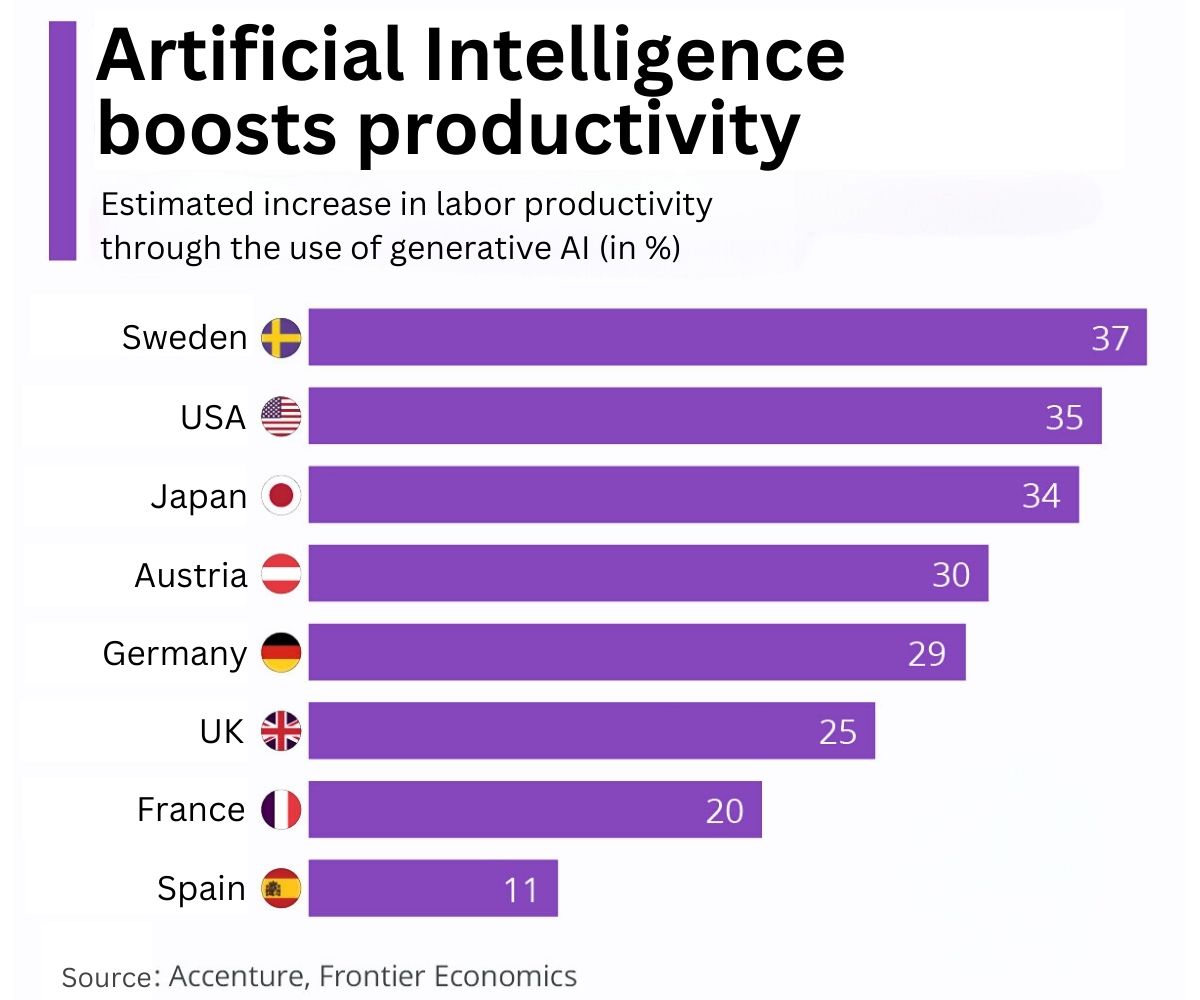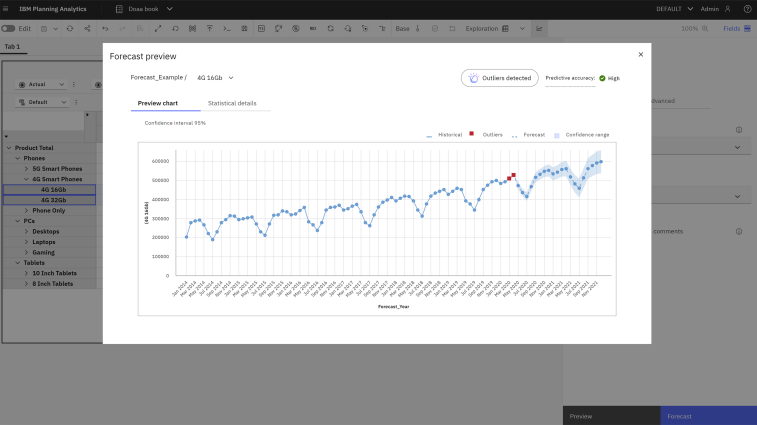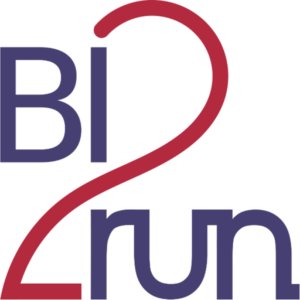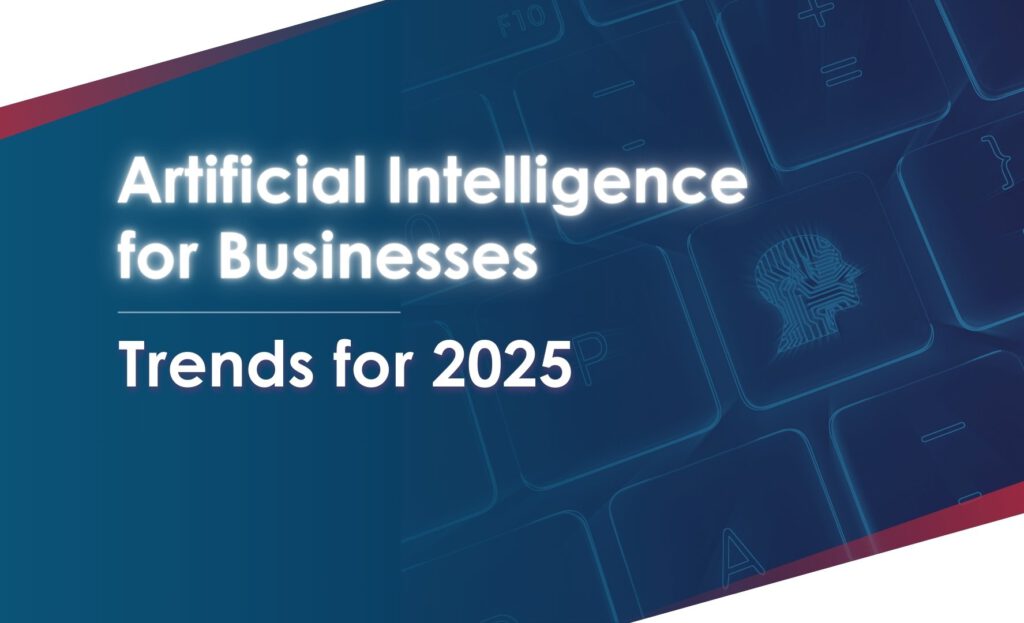2025 will be an exciting year for the use of Artificial Intelligence (AI) in companies. Current developments show that the use of generative AI is becoming increasingly important. What can we expect in the coming year?
Generative AI: the turbo for greater efficiency
One important trend is the increased use of generative AI. Studies show that generative AI can increase efficiency in companies by up to 32%, and the quality of work is also improved by 18%. This means that processes run faster and the results are better at the same time – a clear competitive advantage.
According to a study conducted by the Implement Consulting Group on behalf of Google, the extensive use of generative AI could increase Switzerland’s gross domestic product by up to CHF 85 billion over the next ten years – an increase of up to 11 percent. These figures clearly show the economic potential of the technology and how important it is to jump on the bandwagon in good time.

To achieve this, many companies rely on platforms that help them to train and scale their own AI models. One example of this is IBM watsonx, which can be used to flexibly adapt AI models to specific business requirements. Such tools help companies to implement their AI strategies efficiently, whether in customer service, production or marketing.
Agentic AI: AI agents that make decisions themselves
Another exciting trend for 2025 is the use of so-called “Agentic AI”. These are AI agents that can work autonomously. They not only take on recurring tasks, but can also make decisions independently. This is particularly helpful in customer service, logistics and data analysis, where many repetitive tasks tie up large amounts of time and resources.
These AI agents can make decisions in real time based on large amounts of data. This not only increases productivity, but also the quality of decisions. This enables companies to make better use of resources and react more flexibly to market changes – according to a Gartner study, around 80% of CEOs want to integrate AI into central business processes by the end of 2025.
Planning and AI forecasting
Another key area in which AI will become increasingly important in 2025 is corporate planning. AI-supported planning enables companies to support complex decision-making processes by analyzing large volumes of data.
Whether in supply chain optimization, resource planning or project management – AI forecasting can be used to simulate scenarios and create forecasts that help companies make informed decisions.

Companies that rely on AI-supported planning can reduce costs and increase their efficiency at the same time. AI forecasting, for example, is already integrated free of charge into proven planning systems such as Planning Analytics Workspace, which makes it much easier to get started and use.
AI-supported personalization: UX on a new level
The importance of AI-supported personalization will increase significantly in 2025. Companies are increasingly relying on AI to optimize customer experiences individually and in real time. This will enable companies to better understand their customers and conduct targeted interactions.
This takes personalization to a new level, especially in e-commerce, marketing and customer service. Machine learning and NLP (Natural Language Processing) analyze user behaviour and make it possible to offer products precisely when the need is greatest. This not only increases customer satisfaction, but also loyalty and the completion rate – because according to Accenture, 91% of customers expect personalized offers.

New rules and compliance hurdles
With the AI Act coming into force in the EU in 2024, the requirements for AI applications will continue to increase. From 2025, additional compliance requirements and regular audits will be added to ensure that AI systems are transparent, secure and fair. This means that companies will have to adapt their internal processes and guidelines to comply with the new rules.
These guidelines ensure that AI systems not only work efficiently, but also meet ethical standards. For managers, this means focusing on risk management and working with experts to ensure that their AI applications are compliant.
Conclusion: A look ahead to 2025
2025 will bring some important developments for the use of AI in companies. Whether through the increase in efficiency with generative AI, the increasing autonomy of agentic AI or the new compliance requirements – the rules of the game are changing fundamentally. Companies that act now, position themselves strategically and prepare their teams for the new technologies can not only increase their productivity, but also significantly improve the quality of their decisions and customer interactions.








